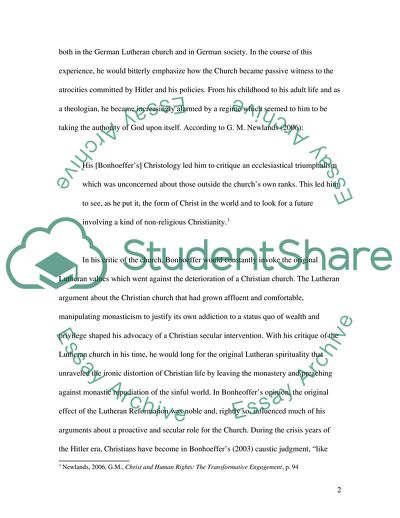Cite this document
(Dietrich Bonhoeffer's Interpretation of Scripture Research Paper, n.d.)
Dietrich Bonhoeffer's Interpretation of Scripture Research Paper. Retrieved from https://studentshare.org/religion-and-theology/1716199-discuss-how-dietrich-bonhoeffers-interpretation-of-scripture-influenced-his-views-and-actions-surrounding-the-issue-of-social-justice
Dietrich Bonhoeffer's Interpretation of Scripture Research Paper. Retrieved from https://studentshare.org/religion-and-theology/1716199-discuss-how-dietrich-bonhoeffers-interpretation-of-scripture-influenced-his-views-and-actions-surrounding-the-issue-of-social-justice
(Dietrich Bonhoeffer'S Interpretation of Scripture Research Paper)
Dietrich Bonhoeffer'S Interpretation of Scripture Research Paper. https://studentshare.org/religion-and-theology/1716199-discuss-how-dietrich-bonhoeffers-interpretation-of-scripture-influenced-his-views-and-actions-surrounding-the-issue-of-social-justice.
Dietrich Bonhoeffer'S Interpretation of Scripture Research Paper. https://studentshare.org/religion-and-theology/1716199-discuss-how-dietrich-bonhoeffers-interpretation-of-scripture-influenced-his-views-and-actions-surrounding-the-issue-of-social-justice.
“Dietrich Bonhoeffer'S Interpretation of Scripture Research Paper”. https://studentshare.org/religion-and-theology/1716199-discuss-how-dietrich-bonhoeffers-interpretation-of-scripture-influenced-his-views-and-actions-surrounding-the-issue-of-social-justice.


